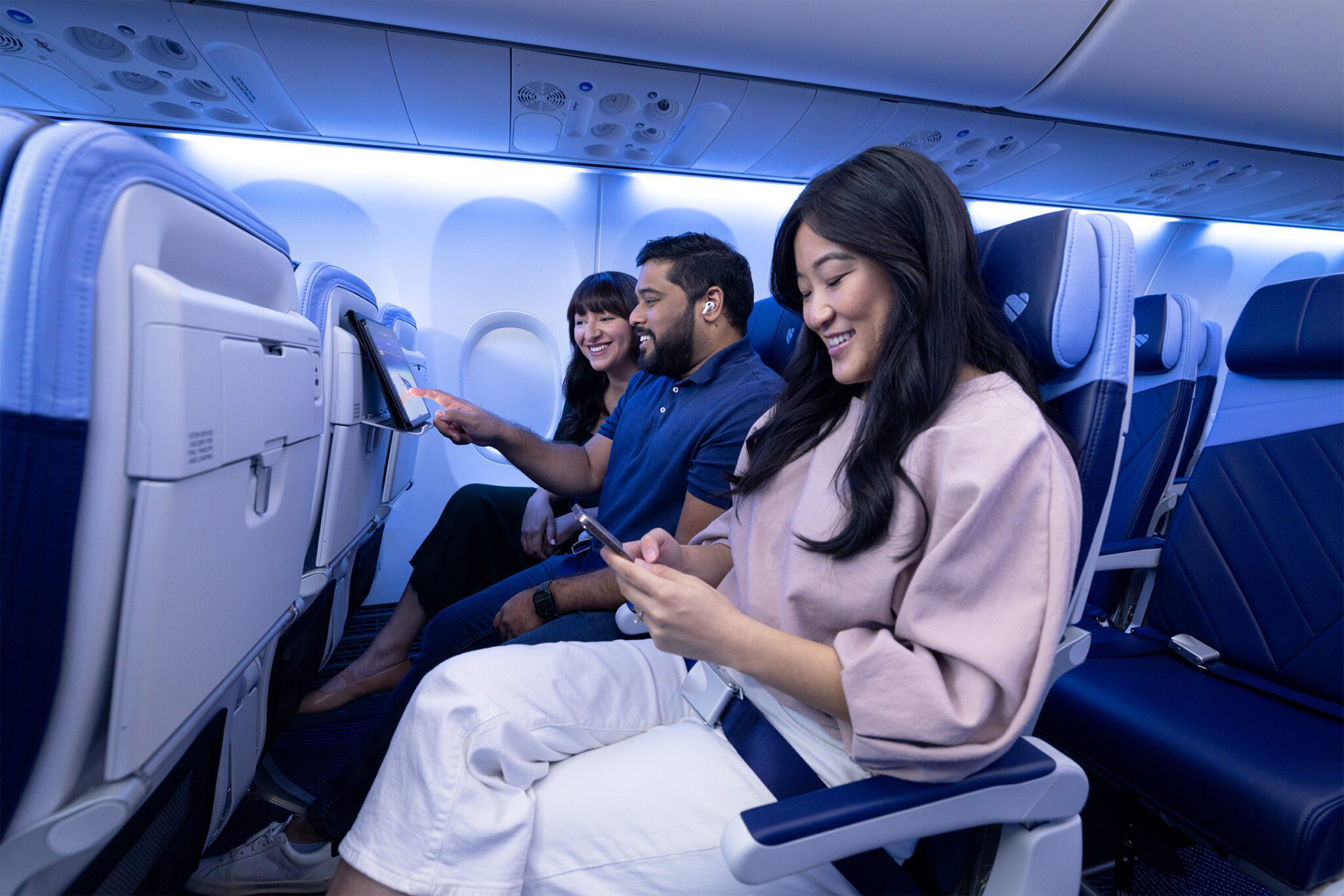Southwest Airlines reported Thursday that it is seeing strong bookings for the holiday travel season and healthy demand as it deals with an activist investor.
The carrier’s third-quarter results beat Wall Street estimates, with a net income of $67 million and revenues of $6.9 billion. Southwest is expecting an increase in revenue for the fourth quarter.
However, the carrier said it is forecasting cancellations from Hurricane Milton and a reduction in capacity to put some pressure on its costs in the fourth quarter.
Even though its profits were down 65%, Southwest partly attributed its better-than-expected third quarter results to an industry-wide moderation in domestic capacity.
“We are laser-focused on delivering the robust set of tactical and strategic initiatives included in our plan and returning to the strong financial performance we expect,” said CEO Bob Jordan in an earnings release.
Commenting on the results, Jay Shabat, Airline Weekly senior analyst said: “Southwest suffered another weak quarter this summer, underscoring its urgency to make changes. Exposure to the oversupplied U.S. domestic market was one major issue in Q3, but this situation eased as summer turned to fall, thanks to heavy capacity cutting by Southwest and others.”
Southwest Execs Bullish on New Plan
Southwest executives unveiled a plan to boost its profitability during its investor day in September. Some of the changes include premium and assigned seating, red-eye flights, airline partnerships, and cutting capacity in underperforming areas.
The company said it expects the plan to add $4 billion before interest and taxes to its earnings by 2027.
During a call with analysts Thursday, Jordan said Southwest was working with regulators and vendors to certify its new premium cabin configurations. He added that with these approvals, retrofitting aircraft would begin early next year. Southwest plans retrofit 50 to 100 aircraft a month with the premium cabins.
Boeing Delays Continue to Create Uncertainty
However, Jordan said that Southwest is ending the year with 2,000 fewer employees. Jordan has said before that Southwest may need to make some cuts due to delivery delays with Boeing 737 Max 7, which still hasn’t been certified by the Federal Aviation Administration.
Southwest chief operating officer Andrew Watterson said the carrier wasn’t expecting to receive the Max 7 next year due to the certification process.
“As we get closer and we do see the certification, … we would then perhaps integrate that into our flying schedule,” Watterson said on the call.
Without the Max 7, Southwest has been aiming to rely more on its existing fleet. Part of the carrier’s plan is to introduce red-eye flights and decrease turn times, known as the time between when an aircraft arrives and departs.
“We’ve got a great order book in place with Boeing that goes through 2031, access to a lot of aircraft at very attractive pricing,” Jordan said. “So we’ve got really good protection there kind of no matter what we want to do with that.”
It’s unclear how the ongoing machinist strike will affect Boeing’s already massive backlog. Boeing’s chapter of the machinist union voted against a new proposal late Wednesday.
Jordan said Southwest is so far unaffected by the machinist strike, but it had planned for the strike lasting around five weeks. The strike is now about to enter its sixth week without a resolution in sight.
“If the strike goes a lot further, again, we’ll look at our fleet opportunities in terms of what we can do and maintain capacity sets,” Jordan said. “At some point, it becomes difficult to do that and you think about having to adjust schedules that are way out in the future. We don’t want to do that because it’s disruptive to our customers. So it’s all total speculation at this point.”
Southwest CEO Bob Jordan is due to speak at the Skift Aviation Forum in Dallas on November 12. Click here to see the full agenda and buy your ticket.
Airlines Sector Stock Index Performance Year-to-Date
What am I looking at? The performance of airline sector stocks within the ST200. The index includes companies publicly traded across global markets including network carriers, low-cost carriers, and other related companies.
The Skift Travel 200 (ST200) combines the financial performance of nearly 200 travel companies worth more than a trillion dollars into a single number. See more airlines sector financial performance.
Subscribe to Skift Pro to get unlimited access to stories like these
{{monthly_count}} of {{monthly_limit}} Free Stories Read
Subscribe NowAlready a member? Sign in here
Subscribe to Skift Pro to get unlimited access to stories like these
Your story count resets on {{monthly_reset}}
Already a member? Sign in here
Subscribe to Skift Pro to get unlimited access to stories like these
Already a member? Sign in here
